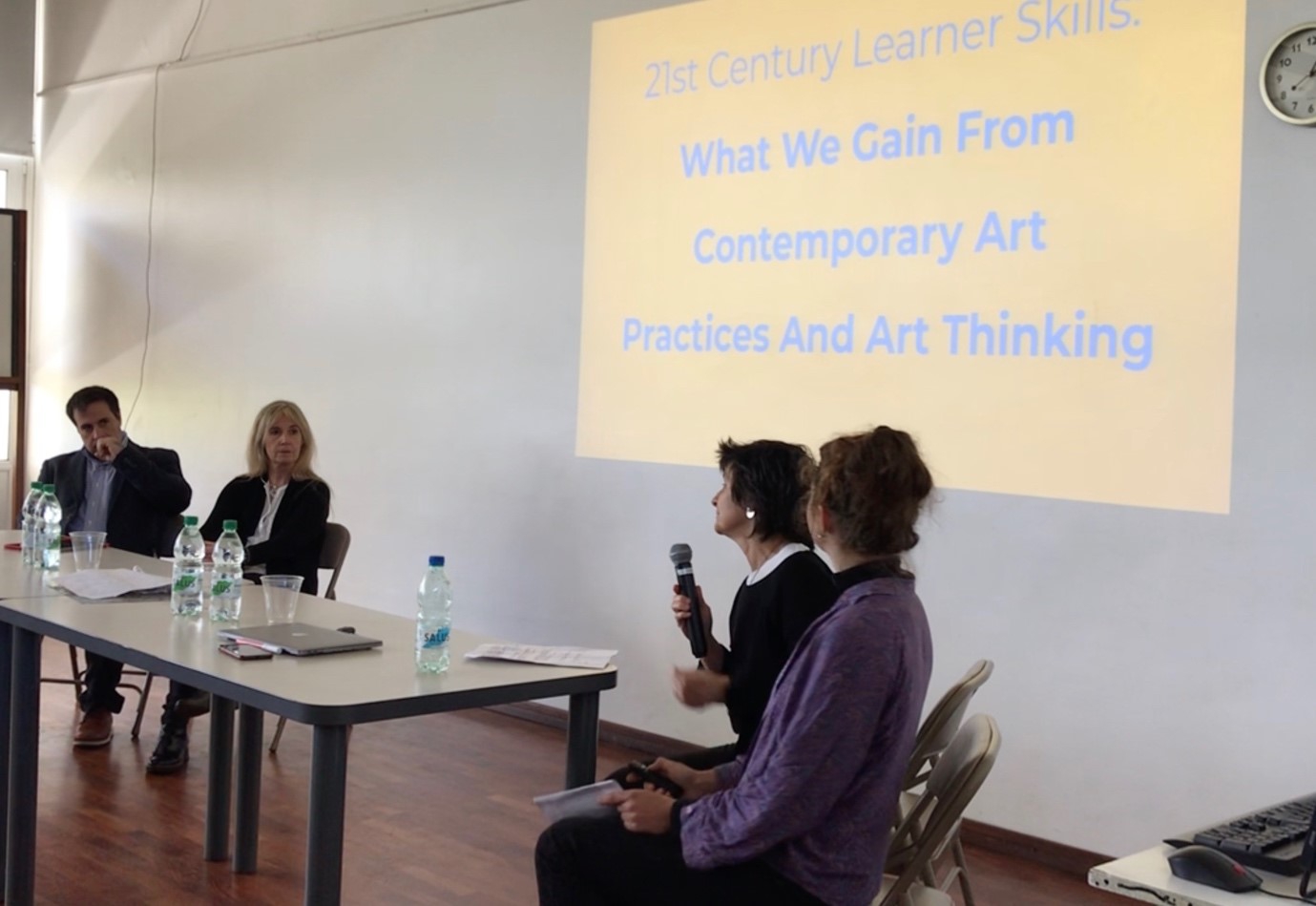5YL - ART WORKSHOP

Google knows everything and Big Data can manipulate us more than ever
What can we gain from Contemporary Art practices and art thinking?
Last Friday, October 18th, 5YL and staff participated in a workshop on “contemporary art practices” and “art thinking” and its relevance regarding the skills required to approach this 21st century.
Maria José Ambrois and Mariana Valdes introduced the topic contextualizing the ideas that contemporary art deals with and the strong connection to global issues that transversally underlay our all IBDP diploma and PYP programs.
Contemporary artists often work in teams together with engineers, mathematicians, biologists, scientists and others, dealing mostly with “wicked problems” such as racism, migration, feminisms, gender issues, AI, big data, fake news, ecology, etc. Their work highlights things that are not usually seen, and by doing so, they contribute to more fair and less violent communities.
Contemporary art is the vehicle for critical reflection, imagines a new possible future, draws attention to suffering, helps different cultures and ethnic groups to perceive each other’s humanity, helps us address painful memories, supports communities to mourn losses, empathises with each other’s losses, strengthens resilience and empowers potential uses of creative approaches to address conflict.
These attributes are also tightly connected to the IB learner Profile.
Two former pupils, brother and sister: Magdalena and Máximo Gurméndez, visual artist and engineer, respectively, were invited to present a talk to 5YL students, on the process of the creation of an artwork for the “Premio Montevideo de Artes Visuales”, posing the question: “Will human creativity ever be paired with a technological outcome deriving from a computer?
Máximo rounded off the workshop providing amazing data on recent numbers regarding ICT, making us all reflect upon the imminent changes our students will be confronted in the close future, providing space for reflection to re-think the skills that will be needed.
We want to specially thank Magdalena and Máximo.
